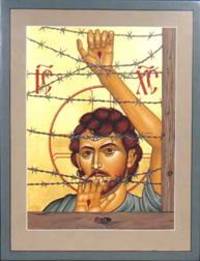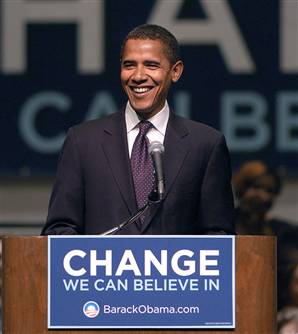Is Barack Obama a Christian?
Much has been made in the last few days as to whether Barack Obama is a Christian.
As seems to almost always be the case, the media assumes (maybe rightly) that we have way too short an attention span to look at questions like these with any depth or intelligence.
I will risk it… though even this is a radical oversimplification.
The reason this debate is ongoing is essentially the same as the debate as to why Obama has said regularly that ISIS and other Muslim groups are NOT Muslims.
Here is the distinction that I think he is making is that he seems to distinguish between: people who have a real “faith”, as he understands it, and “radicals” – meaning people who think of god as a “God” (meaning the driving and ultimate purpose of their lives).
This is why he makes the distinction between Muslims and “radicals” or “extremists.”
Here is one of the great challenges for Evangelicals is that we seem to think that what we mean when we say “Christian” is the same thing as what other people mean.
Just last week, in Womenary (www.Womenary.com), in our study of Ecclesiology (the Study of the Church), we talked about this very topic.
In addition to conservative and other more traditional understandings of Christianity, there are a few other major segments of those who call themselves “Christian.”
One of the is under the heading of “Liberal” theology.
Before you connect that to the political stance of liberalism, remember that the “ “traditional” understanding of “liberal” is to move away from the “traditional” view or the status quo and toward something new-er. In politics, that is not really true anymore, but in theology, it still is.
For our conversation, we will look at the one that matters most here:
Liberation Theology.
The basic teaching of liberation theology is that the Christian life is defined by praxis (practice) over “Doxy”(praise).
 In this movement, what unites Christians is not our common belief in Christ, or our common confession or even our common creeds, but our common practice in trying to create social justice. In fact, this theological view is often referred to as a “Social Justice” movement.
In this movement, what unites Christians is not our common belief in Christ, or our common confession or even our common creeds, but our common practice in trying to create social justice. In fact, this theological view is often referred to as a “Social Justice” movement.
Between their interpretations of the writings of the Hebrew scriptures, especially the prophets, and some of the teachings of Christ about the poor, this movement believes that the key tenets of Christianity are not about a personal relationship with a savior but about a movement that holds that social unrest is needed to make needed changes in societies and among peoples who have been mistreated under colonialism, slavery, and oppression. (How is that for a sentence, by the way?)
In the United States, a common version of this is what is called “Black Liberation Theology.” It has the same tenets, but while the movement originated in South and Central America, in the US, it is primarily about the social injustice African Americans have faced in the United States. There is also the “Feminist Liberation Theology” movement.
It seems evident to me that in this movement, social justice is not a result of the gospel of Jesus Christ, it is the gospel of Jesus Christ. I hope that is a way of saying it that those within the movement would be able to approve of and hopefully, embrace.
Jeremiah Wright’s Trinity United Church of Christ, where Barack Obama learned the version of Christianity that he claims, is a part of this movement.
Of course Barack Obama is a Christian, as he defines it.
What creates confusion is that many do not define it in a similar way.
Back to ISIS (and other terrorist groups), of course they are Muslim… in the way that they define Islam.
Others, like the President, would say that what they believe is not real Islam – though even conservative numbers would indicate approximately 19% of Muslims worldwide are “radicalized” and, it seems, would also not be “Muslim” by the President’s definition… but this is a side point I am making and I should get to it.
(http://www.politifact.com/punditfact/statements/2014/nov/05/ben-shapiro/shapiro-says-majority-muslims-are-radicals/)
Some in the Christian world have labeled “Liberation Theology” as too different in its tenets to be considered Christian.
Richard Niebuhr (PhD Yale. Leading Christian theological ethicist) once described this theological stance as the view that “A God without wrath brought man without sin into a kingdom without judgment through the administrations of Christ without a cross.” The Kingdom of God in America (New York: Harper and Brothers, 1959).
Obviously, Barack Obama and most within that movement might disagree. I would assume they would prefer to distance themselves from what I would define as Christianity as well.
For all Christians, clearly, the work of the Kingdom of Heaven on Earth involves the amazing work around the world of Christians taking care of “The least of these” (Matt 25), the good works cannot replace the saving work of Jesus Christ on the cross. And these works do happen. Anywhere in the world, where people are hurting or in need, there are those ministering to them, often at great personal risk, in the Name of Jesus Christ.
However, Jesus did not die just to make us better people, or merely to live as an example, or to rescue us only from the sins of others against us, but to save us from the consequences of our own sin – righteous judgment and death… and that Jesus Christ is the only sure path of salvation.
I suspect that within a few years, this theological stance will also be seen as “radical” or “extreme” because of its exclusory nature.
Sorry, this has already gone longer than I intended.
I personally believe that what is common about Christianity is our confession and faith in the work of Jesus Christ… aka, the gospel. I do believe that typically, any removal of this as the central tenet of Christianity ceases to be Christianity as its founder, Jesus Christ, intended.
I could never and would never make a judgment on the personal relationship that any other individual has with Jesus Christ. I think it is clearly not my job to separate wheat and tares (Matt 13). I am comfortable saying that I believe that many of his actions and stated beliefs are at odds with Christian belief as I understand it.
As a pure opinion, I suspect that, as many in the Social Justice movement seem to, he most accurately would be  described as a postmodern humanist who, to the degree he worships anything, worships hope and change as concepts… and maybe even as the gospel itself. However, even that is based on a view of him so greatly filtered through media that I am honestly hesitant.
described as a postmodern humanist who, to the degree he worships anything, worships hope and change as concepts… and maybe even as the gospel itself. However, even that is based on a view of him so greatly filtered through media that I am honestly hesitant.
What I do know is that I pray for him regularly, as all Christians, I believe, would be right to do. (I Timothy 2:1) May God guide and lead him. May God bless our country and our country learn to bless God.
Interesting take. I can’t help but wonder what your opinion on Donald Trump would be. Care to share?
I think it is clear that the man, Trump, is not a representation of the character that a Jesus follower like me would prefer to have in my own life or to lead me. Naturally, no human is perfect and when we choose a human to lead us, we are accepting that they are flawed; would we (Christians) prefer them to have more clearly Christ-like character? Of course. Sadly, both candidates seem similarly handicapped this time around with even similar character flaws – intemperate, unfaithful, self-promoting, etc… though I also think we, the American people, deserve the responsibility for creating a system that would make it hard for a gentle, self-controlled, humble person to be willing to run for the highest office, much less achieve it… but I digress.
Even so, I think biblical principles are extremely effective at guiding us toward WHAT to vote for, even if there isn’t a WHO that inspires us in the character department. I am not directly responsible for the personal moral decisions of people who I follow, but I am responsible for the moral positions that I take, as represented in a vote.
Chris, after reading your post I notice you did not address progressive theology. After reading Susan Beaumont’s “Inside the Large Congregation” she finally brings out the progressive theology phrase. My understanding is that progressive in this context means liberal or perhaps in your context liberation.
As I understand it, Progressive Theology is another sub-heading under the Liberal theologies. I would think anything under the heading of “progressive” would likely apply to many modern political liberals. A quick glance would indicate that the progressive Christian movement is an expression of liberal theologies. Thanks for directing me to that!